Published
- 06:00 am
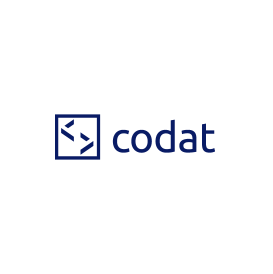
Codat – a London-based technology company that connects the internal systems of small businesses to banks, fintechs and other financial institutions, allowing business data to flow back and forth in real time, has been awarded £2.5m by BCR (Banking Competition Remedies).
The funding will be used to open up Codat’s API on a self-serve basis, allowing a much larger group of fintechs to build new products and services for SMEs, and join ranks of the world's leading fintechs, insurance companies and banks who already rely on Codat.
By removing the technical and financial barriers to getting started, a new breed of nimble products and services for the benefit of small businesses can be brought to market faster and easier than ever before.
The award was made in the latest round of funding declared by BCR, which was established to implement the Alternative Remedies Package of measures agreed between the UK Government and the European Commission.
Pete Lord, CEO at Codat said: “Developers, not bankers, are going to be the people to build the financial products we need for small businesses here in the UK. BCR has recognised that by awarding this money to Codat, they are benefiting potentially hundreds of products instead of just one.”
Over the last three years Codat has made it easier for financial services providers to develop, test and commercialise integrated SME products. In the last 12 months it has successfully accelerated product development and added integrations to better support clients.
For example, at one of the UK banks Codat works with, the company powered the loan application journey for COVID-related small business loans – cutting weeks off the ‘time to cash’ for recipients, and allowing the bank to cope with unprecedented demand in which they received the same number of applications in a week that they normally receive in a year.
The £2.5m grant builds on the original £5m Codat received from BCR in 2019. It will help the company to go further and faster in supporting the rapid commercialisation of diverse SME financial services by removing technical and financial barriers to data integration.
Codat is currently on track to deliver all of its commitments attached to the £5m funding award and is confident of over-delivering on its target of at least 100,000 UK SMEs benefiting from new integrated products and services developed on the Codat platform.
In addition to building a self-serve offering with the new funding injection, Codat has committed to building an additional five accounting integrations, ensuring that new products developed will reach the highest number of SMEs. This would mean over 90% of UK SMEs would be able to connect to integrated products and services enabled by Codat.
Lord added: “With BCR’s backing we’ve been able to move much quicker, to ultimately help support British SMEs – and right now, that’s never had more significance. It’s hugely encouraging to see our strong progress recognised alongside the new set of innovators awarded in this latest round.”
Related News
- 07:00 am
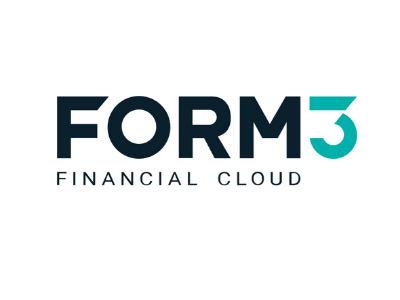
Form3, the leading cloud-native payment technology provider for banks and regulated fintechs is moving into its next phase of growth and development with the completion of a strategic equity investment round of $33m. Following its Series B funding round in November 2018, Form3 has trebled in size and increased its annual recurring revenue by 160%.
The new shareholders include Lloyds Banking Group, Nationwide Building Society and venture capital firm; 83North. Draper Esprit has also re-invested following its participation in November 2018.
Form3 is also delighted to welcome Penny Hughes CBE to the Form3 Board as a Non-Executive Director. Penny has been a Director at well-known brands including Coca-Cola, Vodafone and Reuters and more recently a Non-Executive Director at RBS and Chair of Aston Martin.
Form3’s cloud-native, API platform delivers technical connectivity and managed services to address critical payments infrastructure challenges facing banks and Fintechs globally. The funding will strengthen Form3’s market leading cloud-native payment technology, building significant functional enhancements and accelerating their global expansion plans in existing and new markets.
The new shareholders join existing investors Angel Co-Fund and Barclays.
Michael Mueller, Chief Executive Officer at Form3 said: “Our latest equity round is a testament to our growth and maturity in delivering highly secure, best in class technology for major financial institutions globally. Since our inception, our goal is to lead the field in cloud-native payment technology innovation that delivers a flexible, low risk, highly resilient and efficient alternative to legacy payments infrastructure. The big trend is that cloud-native solutions are now becoming part of almost every core strategy for managing mission critical infrastructure among Tier1 banks and Fintechs and we are here to help them implement that.
Together with our supportive shareholders, Form3 is reshaping payments technology to the next evolution of real-time payment processing without borders.”
Form3 has shown strong results with clear momentum. In the last year they;
- Increased annual recurring revenue by 160%
- Grew from 50 to 140 people in 14 countries
- Expanded in Europe with a regional Amsterdam hub
John Chambers, Group Chief Information Officer at Lloyds Banking Group commented: “As part of our ongoing digital transformation we are committed to providing banking services that are simple and easy to use. Our new strategic partnership, alongside the additional investment announced today, will provide us with the opportunity to implement a cloud native, real-time payment platform to meet our customers’ evolving needs.”
Claire Tracey, Chief Strategy and Sustainability Officer, Nationwide Building Society said: “We are delighted to invest in Form3 as part of our ongoing venturing programme. Our members complete billions of transactions each year, and we are always looking for ways to help improve the process making it simpler, safer and easier for them. We look forward to working with Form3 as we continue to explore technology which will help us develop even more payment functionality for our 16 million members in the future.”
Related News
- 01:00 am

TactoTek, the Finland-based company that develops, industrializes and licenses in-mold structural electronics (IMSE™) technology, announced today that Nalin Advani has joined the company’s advisory board. Mr. Advani brings technology business expertise in operational, entrepreneurial and governance roles in Asia that augments TactoTek’s growing presence in the region.
Mr. Advani has held leadership positions in WindRiver, Solid, Barco, and GreyOrange, scaling their businesses across Asian markets. He is a founding charter member of The Indus Entrepreneurs (TiE) Japan, and a charter member of TiE Singapore. Born and raised in Japan, Mr. Advani is an acknowledged expert in Asia technology business.
Jussi Harvela, TactoTek CEO, stated: “We are very pleased and fortunate to have Nalin supporting our market development activities, organization and strategy in Asia. He brings an extremely valuable combination of business acumen and immersion in the business culture that is essential for success. Nalin’s perspective will support and inform our day-to-day APAC operations as well as our strategic decision making.”
Using IMSE technology OEMs and brands can achieve cost-effective differentiation with smart surfaces. IMSE solutions combine cosmetics and electronic functionality such touch functions, lighting features and wireless connectivity within light, thin (2-4mm), 3D single piece parts that are efficiently mass produced. TactoTek IMSE technology is being adopted globally for human-machine interface (HMI) solutions and other uses in automotive, smart home, IoT and appliance markets. IMSE parts are produced by TactoTek licensees and TactoTek.
“TactoTek has the right solution at the right time for markets globally, and opportunities in Asia are particularly compelling given the high growth of APAC HMI markets,” noted Mr. Advani. “For example, overarching trends in automotive including autonomous operation, connectivity and even styling with advanced illumination, drive the need for sophisticated, easily integrated electronics. The same qualities that make IMSE appealing to automotive OEMs also apply to other industries. That IMSE significantly reduces greenhouse gas emissions and plastics use relative to conventional electronics is increasingly important in the region as well.”
Related News
- 07:00 am
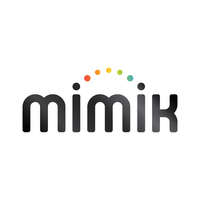
mimik Inc., a pioneering Hybrid Edge Cloud company, and Flybits, the world’s leading experience design platform for the financial sector, today announced their strategic partnership. Flybits will be using and advancing mimik’s Hybrid Edge Cloud platform to offer its customers the next generation of personalization by leveraging edge computing & confidential computing.
mimik’s Hybrid Edge Cloud platform extends the cloud to the edge by enabling any computing device to act as cloud servers. Flybits enables the world’s top financial institutions to elevate their digital channels including mobile apps, to advance beyond just transactions and offer a ‘human-touch’ experience through real-time personalized guidance and recommendations on both core and augmented products and services.
“This partnership reflects the growing need across all industries looking to take advantage of the benefits of Hybrid Edge Cloud technology which can significantly improve the performance and efficiencies of the applications and provide better control over data privacy and data management,” says Fay Arjomandi, Founder, President and CEO, mimik. “We are thrilled to partner with Flybits and have our Hybrid Edge Cloud solutions made available to its global customers and partners.”
mimik’s platform enables a more flexible application operating environment while lowering the costs of operations and application delivery time along with offering higher data privacy for their user base. mimik’s edge Engine is available today for iOS, Android, Linux, Windows, macOS, Raspbian, QNX, OpenWRT, and FreeRTOS and has been used by variety of applications deployed on edge devices such as smartphones, tablets, PCs, smart TVs, WiFi routers, NAS appliances, and IoT devices.
The partnership will expand opportunities for banks to become central ‘trust hubs for data’ within their communities, enabling them to offer more than just one-way transactional services. Banks will be able to partner with other organizations like utility and energy companies, supermarkets, loyalty program providers, hospitals, academic institutions, and telecommunication carriers. This new type of ecosystem will empower banks to be custodians of their customers' data while collaborating with such companies, to create more value for their customers and ensure their data is safe.
“Co-locating data in one place is prone to privacy and security risk. Flybits has a strong patent portfolio on privacy preserved data processing and we are pleased to find a partner who has built a unique technology that can augment our confidential computing capabilities. Such capabilities will empower bank customers to choose how they share their data and for what purpose,” says Hossein Rahnama, Founder and CEO, Flybits. “Our partnership with mimik will introduce a new paradigm, creating an architectural blueprint of trust-based personalization using a cutting-edge technology that has never been used in the financial sector.”
During 2020, mimik and Flybits will advance their partnership, working on multiple projects including commercial deployments and R&D projects focused on IP that other start-ups and partners can use to build impactful business cases.
Related News
- 04:00 am

Wells Fargo Retail Services (Wells Fargo) and Versatile Credit Inc. (Versatile) announced they would begin deploying Versatile’s Snap Sign™contactless self-service technology to participating Wells Fargo retail partners. Snap Sign is a patent-pending technology solution which blends traditional and digital signage to facilitate a secure, instant, transition-to-mobile experience for shoppers anywhere in-store. Snap Sign enables retailers to provide consumers with access to credit during their in-store shopping experience from the comfort and security of their own device.
“Wells Fargo recognizes the unique challenges facing consumers as they return to brick-and-mortar storefronts, including enhanced health and safety concerns about in-store payment devices such as kiosks, terminals and point of sales systems,” said Steve Jermier, Senior Vice President of Relationship Management for Wells Fargo Retail Services. “We are excited to help our retailers offer their customers a variety of payment options, including the convenience, safety and comfort of contactless mobile applications.”
Shoppers simply point their smartphone camera at the Snap Sign signage to be instantly taken to a credit platform on their mobile device. A retailer’s customer can then input their personal information on the platform and quickly transition that information to the credit application. Versatile’s platform securely and seamlessly transitions the applicant to secondary and tertiary providers if the applicant is initially denied, which ensures retailers can offer financing opportunities to customers across the FICO spectrum. Retailers can place Snap Sign signage throughout the store and empower their customers to approach the financing program on their terms.
“We thought it was critically important to find ways for retailers to offer their shoppers options in this current environment of uncertainty,” said Vicki Turjan, president and chief operating officer of Versatile Credit. “Snap Sign is a product of Versatile Credit’s continuous focus on fostering novel, innovative solutions to help our retail and lending partners succeed while addressing new, evolving challenges and opportunities in consumer financing.”
Snap Sign is the newest addition to Versatile Credit’s platform of in-store and online engagement points, including kiosks, tablets, e-commerce plugins and remote sales tools. Retailers can leverage Versatile’s comprehensive dashboard and analytics tools to gain actionable insights and benchmark the performance of their financing program down to the sales associate level.
Versatile’s omnichannel platform is currently in use in thousands of storefronts across North America. Since 2007, Versatile has facilitated more than $29 billion in approved retail credit including more than $5 billion in 2019.
Related News
- 08:00 am

Related News
- 06:00 am
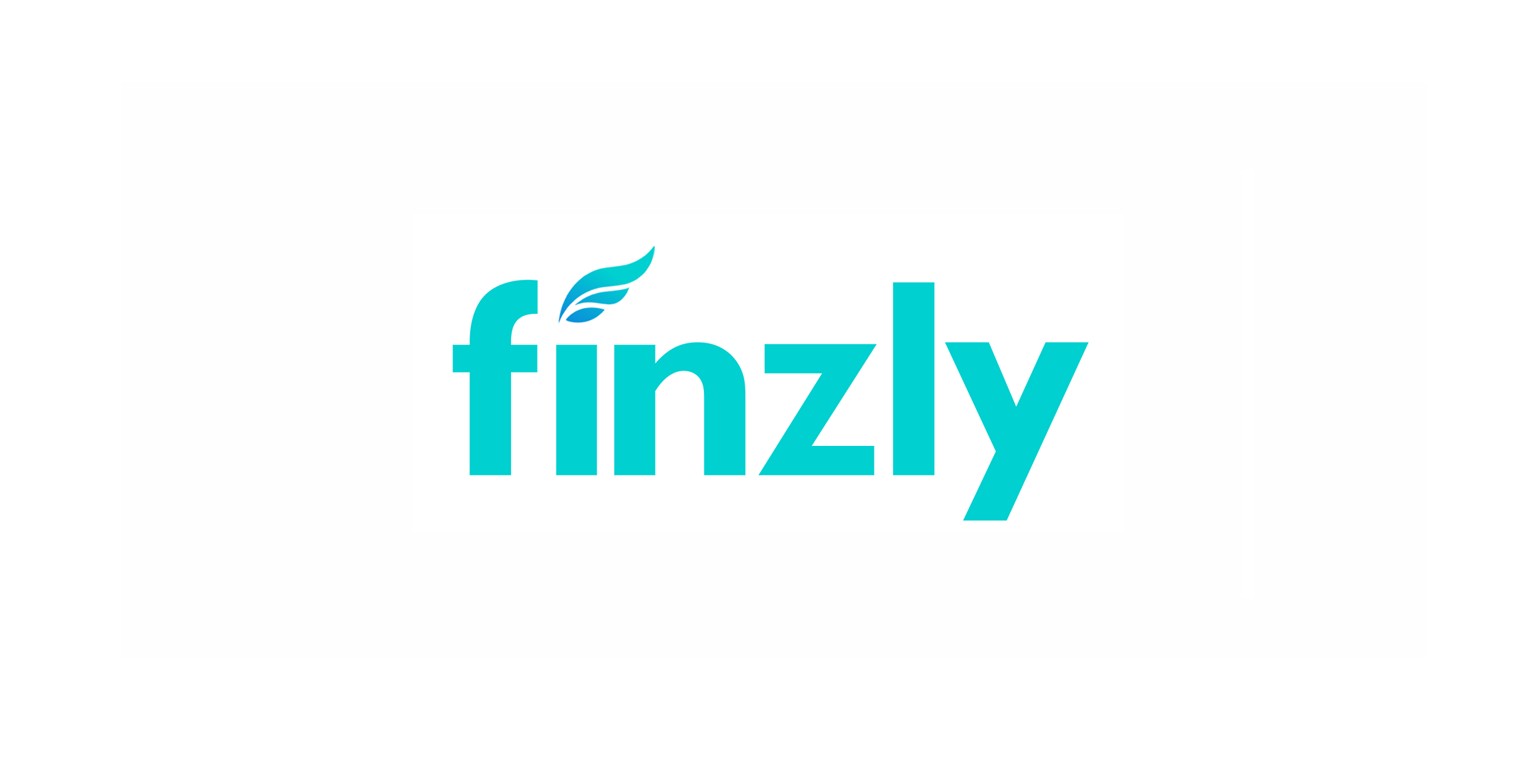
Finzly, a fintech provider of modern banking applications for foreign exchange, trade finance, payments and digital banking, has been named a finalist in two different categories of the second annual Finovate Awards.
A finalist for “Best Back-Office/Core-Service Provider,” Finzly’s bank operating system, BankOS, enables financial institutions to offer customers a more modern banking experience, freeing banks and credit unions from the limitations of legacy technology systems. In doing so, BankOS extends the value of institutions’ existing technology investments by layering onto existing core systems. With BankOS, FIs can create and choose best-in-class products and services to effectively engage with their customers while utilizing the latest technologies, such as open APIs, microservices and cloud computing, to transform operations and innovate at the speed of fintech.
Finzly was also named a finalist for “Best Enterprise Payments Solution” for Payment Galaxy, a payment services hub that offers financial institutions the opportunity to transform legacy payment infrastructure and operations with modern, centralized payment processing, monitoring, reporting and compliance capabilities. Finzly’s payment services hub efficiently connects multiple payment networks through intelligent payment routing and open payment APIs into a single user interface, sparing FIs from the burden of managing multiple systems and vendors while simplifying payment network connections.
“Finzly is bringing modern technology to an industry that still largely relies on legacy technologies, complex architectures and disjointed experiences,” said Booshan Rengachari, founder and CEO, Finzly. “We’re moving the industry forward by enabling FIs to more quickly and cost effectively develop innovative products and services and bring them to market. Our team is honored to be recognized by Finovate as one of the industry’s best and brightest for our commitment to driving innovation and digital transformation.”
Finzly is slated to present at both of Finovate’s digital events this fall, FinovateFall and FinovateWest.
Related News
- 08:00 am
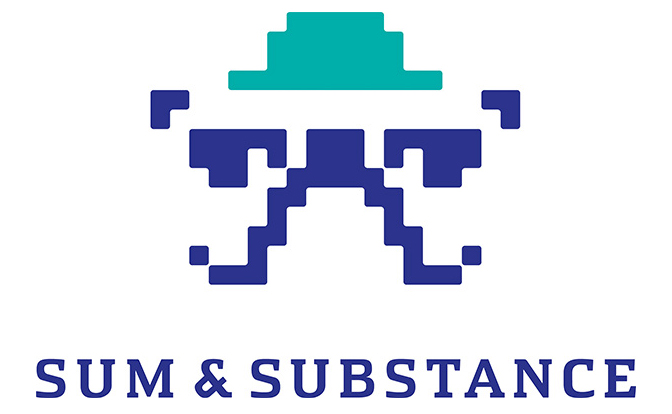
Sumsub, an identity verification platform that provides an all-in-one technical and legal toolkit to cover KYC/KYB/AML needs, is due to help the biggest coworking companies reach AML/KYC compliance and reinforce anti-fraud under the roof of Cowork Tools, a platform that empowers community coworking with essential enterprise-level tools.
Cowork Tools is a new project created and supported by Exodus, Velvet, and The European Coworking Assembly that unites 583 of the biggest coworking spaces in Europe. The platform provides coworking with two sets of solutions: compliance tools, which automate the process of GDPR and AML/KYC compliance, and payment tools, which take care of accurate online identification, payments, safeguarding online and international deals.
As is with any other regulated company, coworking spaces are licensed, registered enterprises that provide legal addresses, cross-border secretarial and accounting services, and fall under the legal requirement to comply with the relevant AML/KYC demands. To help meet these strict AML/KYC requirements and move away from manual work, Cowork Tools implemented Sumsub's services. Co-working businesses should have the right to access tools for small businesses, so that they can convert trustworthy customers, automate verification and quickly eliminate fraud. The partnership between Sumsub and Cowork Tools allows this.
‘Coworking companies need secure and efficient KYC/AML solutions. However we often see complex and rigid products that are unfit for smaller businesses. We are glad that Sumsub broke this trend and was able to provide us with a fast-growing product perfectly suited to make coworking communities safe and compliant with international guidelines,’ said Alex Zelinsky, CEO at Cowork Tools.
‘Compliance is a complex topic; but even small and medium-sized businesses have to deal with it in the same way as large businesses with powerful resources. Cowork Tools are helping their clients, by offering much-needed solutions in an accessible format,’ adds Jacob Sever, Co-founder of Sumsub.
Related News
- 09:00 am

SPOKO, an app which offers instant international money transfers, is entering the UK market by targeting South Asian migrant workers looking to move money without the need for bank accounts and costly transfer payments, while also seeking partners to integrate its white label API service.
Quick and cheap money transfers by the British-Polish fintech SPOKO can already be made from EU countries and the UK to 16 countries. The long-term aim is to operate in 51 countries, whilst enabling money transfers to 86 countries.
SPOKO means ok/cool in Polish. The app already enables users to send money from Europe to their home countries in local currency, via their mobile, bank account or a Point of Sale outlet. SPOKO distinguishes itself from traditional money transfer providers like Western Union and newer entrants into the market such as TransferWise and Azimo by offering an extensive payment infrastructure that allows many different local payment methods. For example, in India, you can pick up money in cash or by transfer to a bank account; in Ukraine, by card; in Nigeria, by topping up your phone.
As well as targeting consumers, SPOKO is offering an open API to enable financial, telecommunications or recruitment companies the ability to operate transfer services using a white label model. SPOKO already works with PrivatBank and Alfa Bank, two of the largest Ukranian banks, and has carried out several integrations with international partners such as the British fintech Trust Payments.
Evgeny Chamtonau, CEO of the fintech start-up, explained the company’s business model: “we have a great understanding of our users’ expectations, their habits, and which form of money transfer is most convenient for their needs. From the very beginning in 2019, we focused on local markets. We started by developing a service for Ukrainians working in Poland, under the PayUkraine brand, and recently passed the 120,000 user milestone.
The company is now transferring the same best practice to new markets. He continued: “In the UK, we want to attract immigrants from India and Pakistan who usually send money from their bank account to be received in cash via various Points of Sale. We do not insist that our UK customers necessarily associate their money transfers with our brand SPOKO. The most important thing for us is that they use it!”
He commented on the company’s decision to offer a white label service: “our business model focuses on touch points; for example, portals with job listings or important news sites for immigrants. We are also interested in cooperation with financial applications our users prefer. Thanks to the white label service, SPOKO can be integrated by banks, portals, and various applications used by immigrants.”
Readymade banking solutions to pandemic problems
Before the pandemic, the team focused on Ukrainians, especially those working in Poland. Due to the unique circumstances posed by the quarantine, the team committed to expansion. In July, Azerbaijan, Bulgaria, Belarus, Brazil, Georgia, Kazakhstan, Kyrgyzstan, Moldova, Nigeria, Pakistan, Russia and Uzbekistan joined the list of countries where SPOKO services are available. Money can currently be withdrawn at 50,000 agent locations across countries such as India, Ukraine, Russia, Pakistan, Georgia, Belarus and Moldova.
SPOKO co-founder Aliaksandr Horlach observed that greater cooperation with various banking and fintech institutions became possible whilst working from home during the lockdown period as banks froze pre-existing projects. “We provided readymade solutions,” contends Horlach, “it was a very active time for us.”
“The entire team has worked securely and remotely for the past five months. Taking into account the number of implementations and the team's commitment, remote working has passed its test in our case.”
Related News
- 09:00 am

Red Hat, Inc., the world's leading provider of open source solutions, and Intuit Inc. today announced collaboration between the two companies on Argo CD, a declarative continuous delivery tool for Kubernetes deployments. Argo CD makes it easier to manage configurations, definitions and environments for both Kubernetes itself and the applications it hosts using Git as the source of truth. Argo CD, open sourced by Intuit in January 2018, is also an incubation-level project within the Cloud Native Computing Foundation (CNCF) and is currently deployed in production by many companies including Electronic Arts, Major League Baseball, Tesla, and Ticketmaster.
Argo CD and GitOps practices make it easier, safer and more repeatable for developers to deploy their applications to multiple Kubernetes clusters. Developers can automatically bring deployed applications to their desired state specified in version control systems, notably Git. GitOps practices also allow for maintaining full transparency through the version control system’s audit capabilities and provide a straightforward mechanism to roll back to any desired version - even across multiple Kubernetes clusters. In addition, Argo CD increases visibility into the state of deployed applications, alerting developers if these workloads have deviated from their desired states. IT operations teams can also gain more consistent deployment of Kubernetes clusters by managing these deployments out of Git, just like developers would with applications.
Red Hat will work with Intuit and other community members to expand the Argo project to encompass a broader range of corporate and individual contributors. The company will also contribute development resources and leadership in building open source ecosystems and expanding projects into industry standards, evidenced by its work in the Linux kernel, Kubernetes, Fedora, the CNCF and more.
Red Hat and Intuit will also look to bring Argo into the OpenShift ecosystem, where it is already a popular community-supported extension. The collaboration will help to smooth the path to an enterprise-supported solution based on Argo and GitOps principles for OpenShift. Red Hat will also expand the multi-cluster management capabilities in Red Hat Advanced Cluster Management for Kubernetes in order to integrate with Argo. This will help to further strengthen OpenShift’s leading configuration management and policy management capabilities across all Kubernetes infrastructure, on-premises and in public clouds.
Brad Micklea, vice president, Developer Tools, Program and Advocacy, Red Hat said: “Red Hat contributes to, and helps to lead thousands of open source projects across the enterprise IT spectrum. We’re pleased to work with Intuit to further extend the reach and scale of the Argo technology. Argo, by increasing the transparency and reducing the risk of application deployments in hybrid and multi-cluster environments, makes it safer for teams to deploy more quickly and more frequently, giving organizations a competitive advantage in an increasingly application-centric business world.”
Pratik Wadher, Vice President, Development Platform, Intuit adds: “As Intuit built a new development platform on Kubernetes, we needed a Kubernetes-native tool to manage our application delivery. When we started the Argo CD project, we knew we needed to create a reliable, performant, and declarative continuous delivery tool for deploying thousands of microservices across hundreds of Kubernetes clusters using Git as the source of truth. We built Argo CD in the open from the beginning as we knew there was a gap in enterprise-ready CD tooling for the Kubernetes ecosystem and wanted to contribute to the community. Now that Argo is part of CNCF and we have so many users, it is time to collaborate with companies like Red Hat to set up open governance for long-term project growth.”
Additional Resources
- Learn more about Red Hat Developers
- Read more about Red Hat OpenShift









